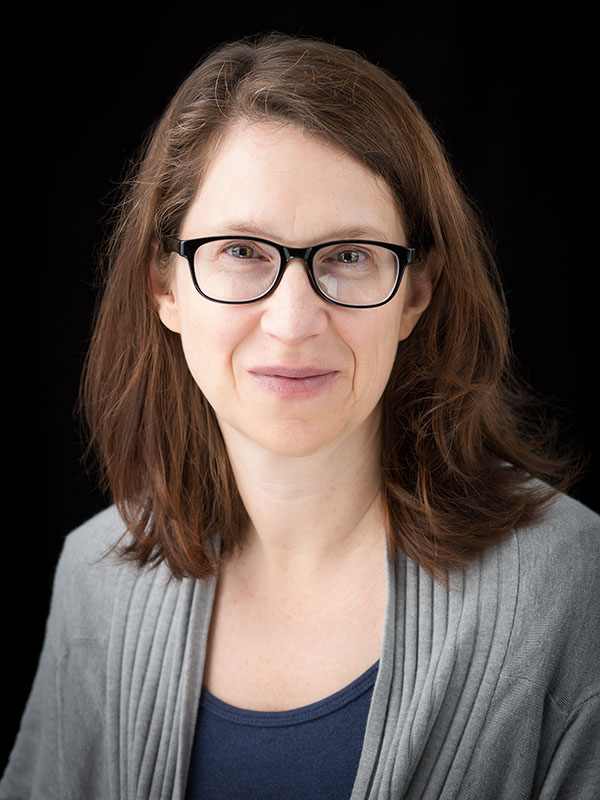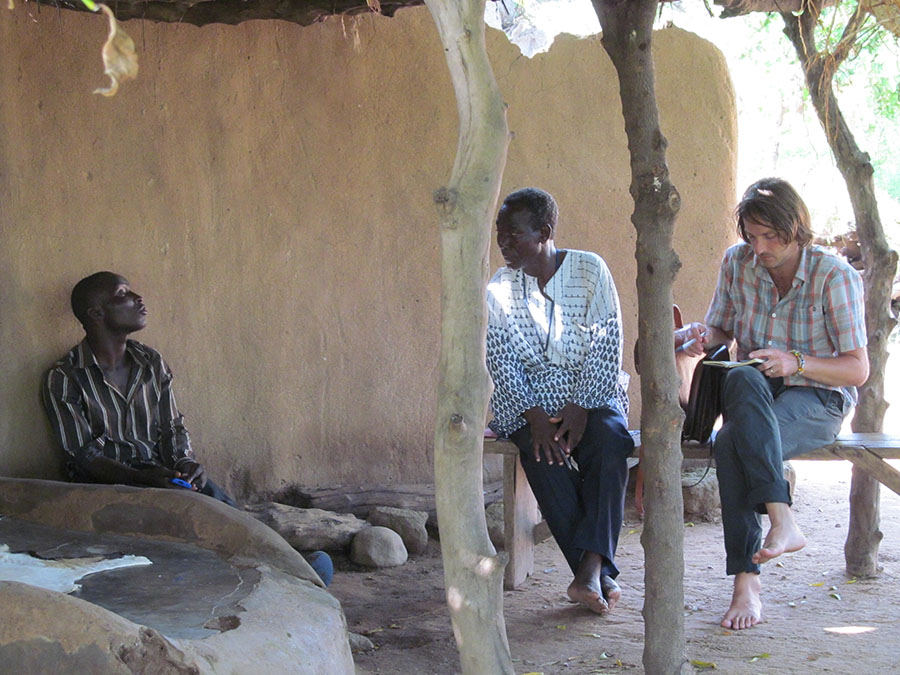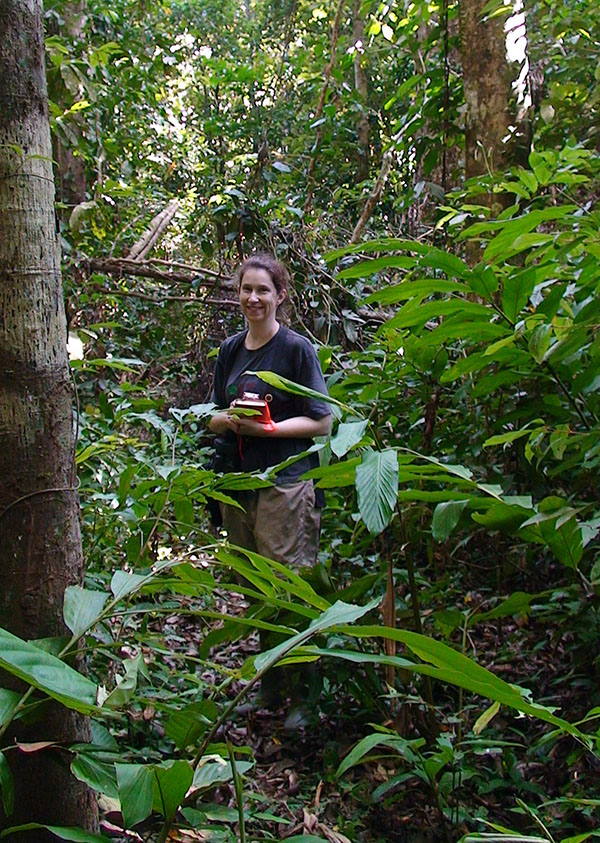BOONE, N.C.—Dr. Anatoli Ignatov, assistant professor in the Sustainable Development Department and Dr. Susan Lappan, assistant professor in the Department of Anthropology, both at Appalachian State University, were honored with prestigious Fulbright Scholar Awards this spring.
Ignatov and Lappan are among over 1,900 U.S. citizens selected for the 2017-18 academic year. Recipients of Fulbright awards are chosen on the basis of academic and professional achievement as well as record of service and leadership potential in their respective fields.
Relationships of indigenous peoples to their land and the use of that land will be the primary focus of Ignatov when he begins two trips to Ghana, bolstered by the Fulbright Scholar award. Ignatov is no stranger to Ghana. His dissertation for a Ph.D. in political science was based on fieldwork in that country, where he studied political responses to an ongoing environmental crisis.
According to Ignatov, land ownership in Ghana is a complex mix of customary and statutory systems. This leads to significant ambiguity and land disputes because only 10-20 percent of land ownership is legally registered. Ownership of the rest of the land is woven into oral history.
Who makes the decisions about how the land is used and how sustainably resources are managed is inherently in question due to competing oral histories and to the political activities of chiefs and earth priests. For chiefs, land is thought of in terms of jurisdictions or political territories which can be governed, taxed, and provided with infrastructure and development. For earth priests, land is embedded in a social covenant with ancestors and spiritual entities, and rituals serve to continue the covenant. This idea of the sacred has implications for sustainable interactions with the environment.
According to Ignatov, the project to be funded by the Fulbright award “aims to provide insights into the contemporary debates about sustainability, the central question of what is to be sustained, and to cast light on the complex interactions between the plural land tenure system in Ghana and development and state-building processes.” Concerning benefit of this project to Ghana, Ignatov wrote, “The project could benefit the host country by clarifying both who holds allocative authority over land and the status of contested land previously acquired by the state.”
Additionally, with his Fulbright grant, Ignatov said, “I will work on building a long-term institutional collaboration between Appalachian and the University for Development Studies in Tamale [Ghana].” He will also mentor graduate students during his two trips funded by the Fulbright award.
Lappan was awarded a Fulbright grant in support of a 10-month project studying the ecology and conservation of the siamang, an endangered primate that is only found in Sumatra and peninsular Malaysia. Lappan’s research, which will be conducted in collaboration with the School of Biological Sciences at the Universiti Sains Malaysia, will involve the first systematic survey of siamangs across Malaysia in over 30 years. This research could have profound implications for the ecosystem there.
According to Lappan, although peninsular Malaysia contains some of the oldest forested areas in the world, approximately half of the original forest has been converted to other land uses, including industrial development and agriculture. The fragmentation, loss and degradation of siamang habitat puts them at risk of extinction, and according to Lappan, research has shown that siamangs and other gibbons are important components of functioning ecosystems as ecological competitors, plant predators, and seed dispersers. This means the loss of siamangs from any ecosystem they have inhabited for millennia is likely to lead to a cascade of additional negative impacts. So, the need for information about Malaysian siamangs is not simply a point of academic curiosity but rather a point of vital conservation interest.”
While in Malaysia, Lappan and her research partners will conduct surveys to determine which forests are still inhabited by viable populations of siamangs and to develop a more comprehensive estimate of the siamang population. This information will help the research team to determine how habitat characteristics affect siamang population densities and to identify the most important sites for conservation actions.
Along with conducting research on the species itself, Lappan plans to work with government agencies, such as the Malaysian Department of Wildlife and National Parks, local universities and non-governmental organizations like the recently-formed Malaysian Primatological Society, to increase local interest in and knowledge about gibbon conservation, and to develop a feasible plan of action to ensure the future of the Malaysian siamang.
Lappan reflected about how the Fulbright Scholar Program creates opportunities to build relationships with other professionals in order to find solutions to difficult problems. She wrote, “The Fulbright Scholar Program, by supporting international exchange and cooperation, creates opportunities for scholars from the USA and overseas to develop deeper understanding of other cultures and people, to build relationships, and to initiate productive conversations about difficult problems. I am grateful for the opportunity to work toward these goals in Malaysia and after I return home.”
As a follow-up to the ten-month grant period, Lappan and colleagues at Universiti Sains Malaysia and the University of Texas-San Antonio are also developing a five-year plan to continue surveys and other research on the three gibbon species found in peninsular Malaysia, to develop and implement effective conservation plans, and to promote local interest in and capacity for gibbon protection.
About the Fulbright Scholarship Program
The Fulbright Program is the flagship international educational exchange program sponsored by the U.S. government and is designed to build relations between the people of the United States and the people of other countries that are needed to solve global challenges. The Fulbright Program is funded through an annual appropriation made by the U.S. Congress to the U.S. Department of State. Participating governments and host institutions, corporations, and foundations around the world also provide direct and indirect support to the program, which operates in over 160 countries worldwide.
About the Goodnight Family Department of Sustainable Development
One of seven departments housed in the College of Fine and Applied Arts, the Goodnight Family Department of Sustainable Development at Appalachian State University prepares students to thoughtfully analyze human development while focusing on the applied practice of pursuing transformative, community-driven development and social change. It offers a Bachelor of Science degree in sustainable development with concentrations in agroecology and sustainable agriculture; community, regional and global development; and environmental studies; as well as a Bachelor of Arts and minor in sustainable development.
About the Department of Anthropology
The Department of Anthropology offers a comparative and holistic approach to the study of the human experience. The anthropological perspective provides a broad understanding of the origins as well as the meaning of physical and cultural diversity in the world – past, present and future. The department offers numerous research opportunities for students including field schools, internships, lab projects and independent studies at home and abroad. Students may earn B.A. and B.S. degrees with concentrations in sociocultural anthropology, archaeology, biological anthropology, and social practice and sustainability.
About Appalachian State University
As a premier public institution, Appalachian State University prepares students to lead purposeful lives. App State is one of 17 campuses in the University of North Carolina System, with a national reputation for innovative teaching and opening access to a high-quality, cost-effective education. The university enrolls more than 21,000 students, has a low student-to-faculty ratio and offers more than 150 undergraduate and 80 graduate majors at its Boone and Hickory campuses and through App State Online. Learn more at https://www.appstate.edu.
What do you think?
Share your feedback on this story.















